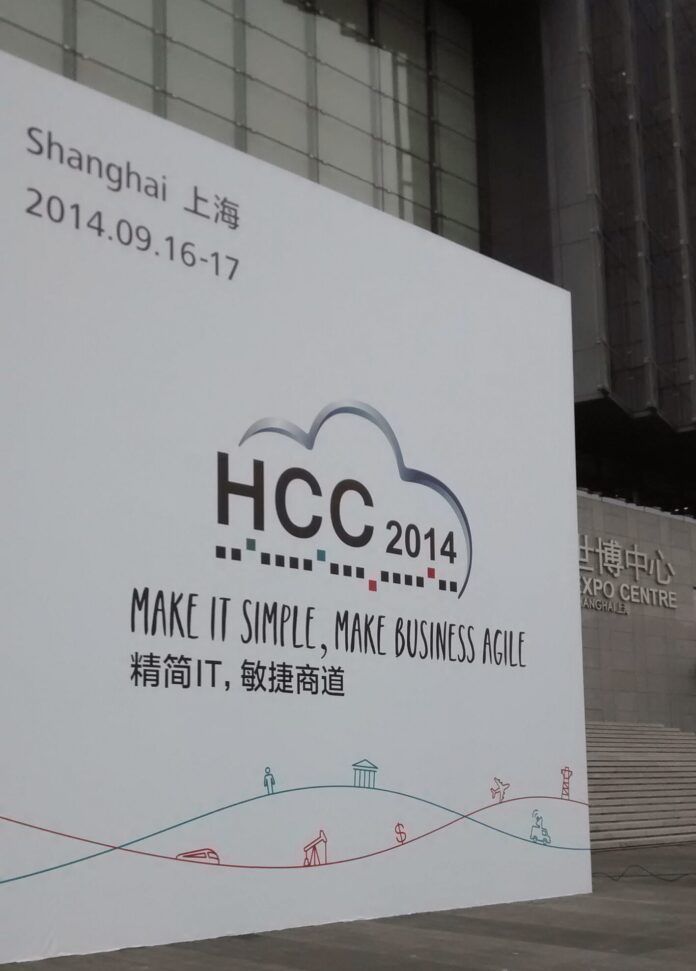SHANGHAI — Huawei has set a target for its recently launched enterprise business to become the leader in the IT infrastructure field.
“We are leveraging our strength to the IT field,” said Eric Xu, rotating CEO and deputy chairman of the board at Huawei Technologies, during a keynote at this week’s Huawei Cloud Congress in Shanghai.
Huawei has built and said it is increasing its product line focused on enabling enterprises to build their infrastructure ecosystem based on the cloud. This means that Huawei won’t offer cloud computing services, but instead plans on battling giant IT groups by providing the infrastructure necessary to various enterprise sectors to have their own data centers.
During the Huawei Cloud Congress event, Huawei launched a series of IT solutions, including data centers, converged storage, cloud operating systems and big data analytics platforms.
Currently, telecom carriers account for the largest share of Huawei’s revenues, while its enterprise and consumers units still have room to grow. Therefore, when Huawei states its ambition to lead in the IT world it means the Chinese company is getting ready to battle U.S.-based information technology businesses such as IBM, Hewlett-Packard, Dell and others.
The itch to be more aggressive in the IT infrastructure field is based on the focus of cloud data center solutions and built on the cloud concept technology. Huawei counts numerous products that support the strategy, including its FusionInsight big data platform; ManageOne data center management platform; its mid-range and high-end FusionServer products; the OceanStor storage solution; the CloudEngine agile network platform; and the data center 3.0.
“Huawei is already positioned as a trusted product provider,” said Xu. “We aim to become the leading IT company and [we are using this event] to demonstrate our determination to become the leader.”
Huawei established its IT product line in 2011 with its desktop cloud solution. A year later, higher-end products were launched and last year the “Fusion” strategy was announced. Huawei claims that the IT products from its 3-year-old enterprise business serve more than 500 customers in over 40 countries, and the company has supported its customers in building more than 400 data centers, of which about 120 are cloud-based data centers.
As Zheng Yelai, president of IT product Line at Huawei, explained, the company is closely watching big-market trends and their impact on the enterprise environment. Those trends include how mobile is driving data consumption, how the “Internet of Things” is driving data generation and the demand for more analytical solutions brought by big data. Huawei forecasts that by 2020, global ICT spending will increase to approximately $5 trillion.
“ICT is redefining every aspect of value creation with big data now a vital enterprise asset,” said William Xi, chief strategy and marketing officer at Huawei. “Service-driven cloud data centers will form the core of tomorrow’s networks architecture. We believe in the future the network will be [based around] user-driven cloud data centers.”
Travel costs to the Huawei Cloud Congress were provided by Huawei.


